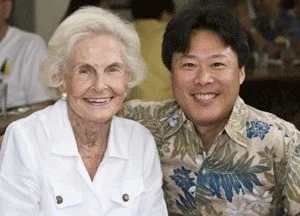Video provided by the National Marrow Donor Program (NMDP).
Support Our Cause
Hawaiʻi Cord Blood Bank is a 501(c)(3) non-profit organization that needs your support.
Your support will help our day to day operations in collecting, processing, and storing donated cord blood stem cells from Hawaiʻi. It gives us greater ability to reach potential donor families, communicate effectively with our volunteer collection staff, and improve current processes.
If you or someone you know would like to contribute to our mission of increasing patient access to transplant, please use the links below to make a monetary gift to our organization.
HCBB Supporters
The founding and piloting of this "home grown" program was made possible by strong financial and other support from local sources. A large portion of the initial funding was provided by private donations. The Hawaiʻi Cord Blood Bank owes a special debt of gratitude to Mrs. Emily O. Castle, whose generosity and commitment allowed the program to become a reality.



